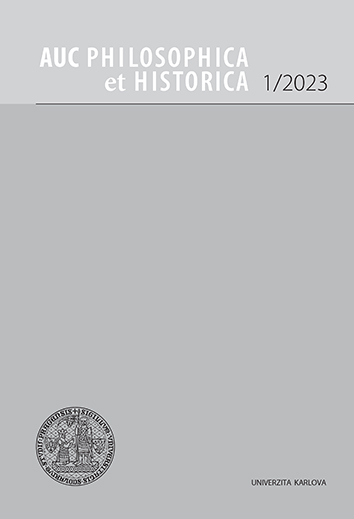AUC Philosophica et Historica (Acta Universitatis Carolinae Philosophica et Historica) is a multidisciplinary academic journal focused on the humanities with more than 50 years of tradition.
The journal is indexed in CEEOL, DOAJ, and EBSCO.
AUC PHILOSOPHICA ET HISTORICA, Vol 1975 No 1 (1975), 83–101
Spory o formální a neformální strukturu průmyslového podniku
[Controversies about the Formal and Informal Structure of Industrial Enterprises]
Miroslav Petrusek
DOI: https://doi.org/10.14712/24647055.2018.128
published online: 15. 01. 2018
abstract
The purpose of this article is to consider the possibilities of using the classical dichotomy of formal and informal organization for a Marxist analysis of an industrial enterprise. The author therefore analyzes the non-Marxist conceptions of H. Schelsky, R. Dubin, Renate Mayntz, R. Dahrendorf and others, and Marxist authors J. Kolář, A. Satrapa, K. Doktór, A. Matejek, etc. He is also critical of some of his own conceptions formulated in the mid-sixties. On the basis of analyzing written on this subject he arrives at the conclusion that conceptions of the relation between a formal organization and informal structure can be divided into three basic types: 1. the ideal typical conception in which the formal organization is conceived as an ideal type (model) of an optimum functioning system and an informal structure as a relatively independent component of the system, which arose along parallel lines, and which fulfils an interventional function to that system (modifies, changes its planned optimum course); 2. a realistic conception in which the formal organization is understood as a set of regulations determining the behaviour of its members, who by the fact that they are grouped in non-formal structures of this organization are influential, in turn, through their sub-institutional behaviour; 3. the interaction concept in which the formal organization is understood as an ensemble of instrumental relations subordinated to the attainment of organizational goals, and the non- formal structure as an ensemble of relations that are intimately personal. These three different conceptions of the dichotomy of a formal organization and informal structure then have differing results even as regards proposals for practical recommendations. The author then examines to what extent social reality in this dichotomy is realistically reflected and to what extent it is deformed. On the basis of an analysis of Marxist literature the author comes to the conclusion that in discussion on this subject there appeared distinctly varying, and one might almost say contradictory, conceptions, mainly that of the universal usefulness of the dichotomy both for an analysis of the capitalist and the socialist enterprise on the one hand, and the conceptions of its absolute non-usefulness on the other hand. The author inclines to the view that the dichotomy in principle is a valid conceptual construction but one which can be used in the frame Marxist sociology only with the following limitations: 1. The dichotomy covers only one aspect of the social system - the enterprise: an analysis of the formal structures must be supplemented by a concrete analysis of their social class determination. 2. In the capitalist and socialist system both structures (formal and informal) have different characteristics. This difference can best be expressed by the category of interest. But not even in socialist enterprises does there exist complete interest identity, so that under concrete conditions antagonisms can occur between the demands of a formal organization and the interests of certain groups of workers. 3. The concept of an informal structure must not be understood as a residual category into which everything that is not formally prescribed or fixed is mechanically included. Therefore the concept of an informal structure must be subject to a systematic theoretical analysis and empirical study.
